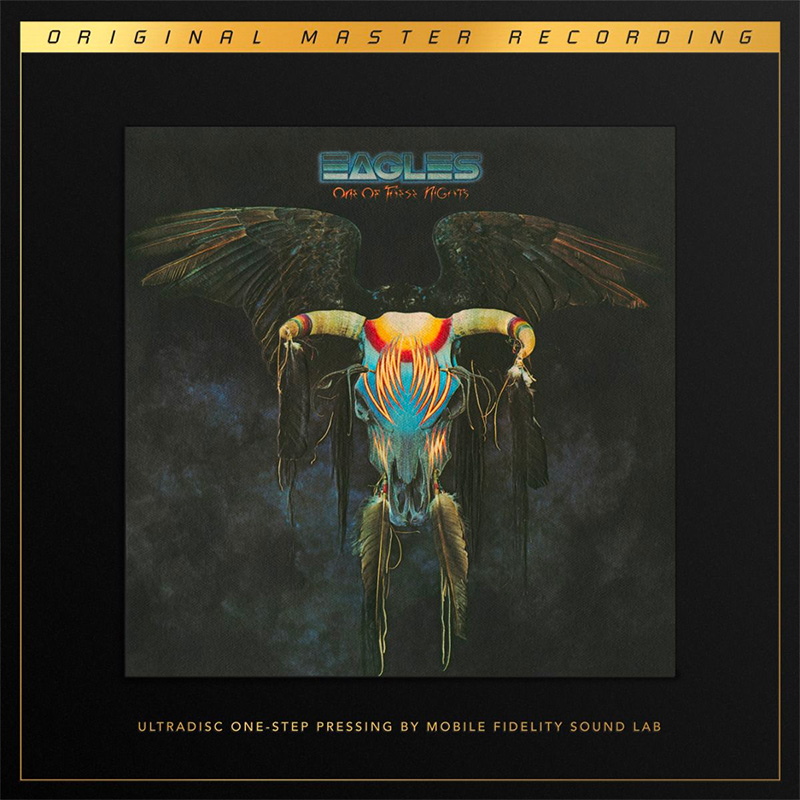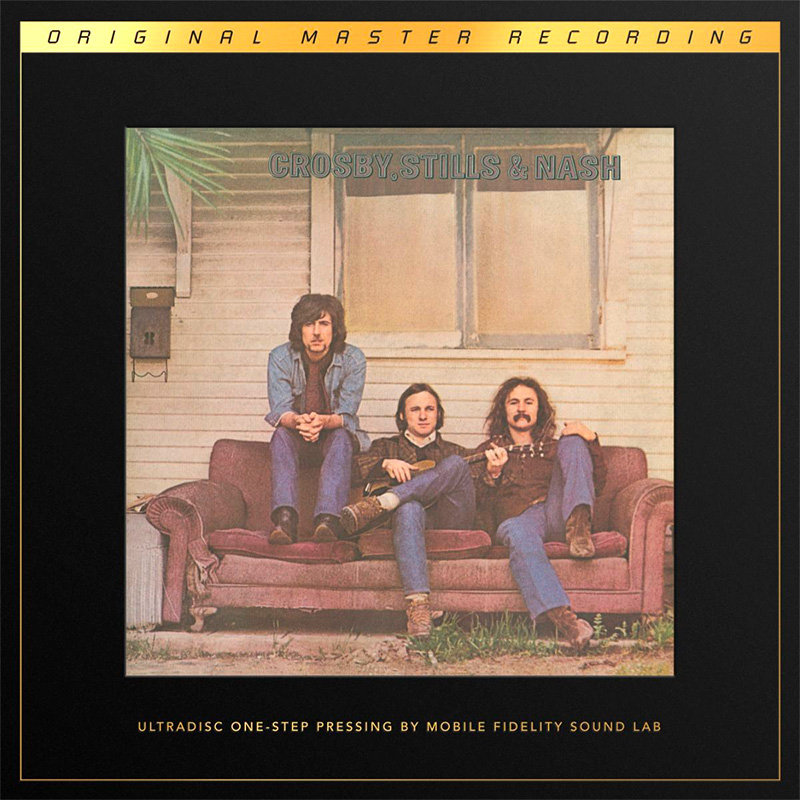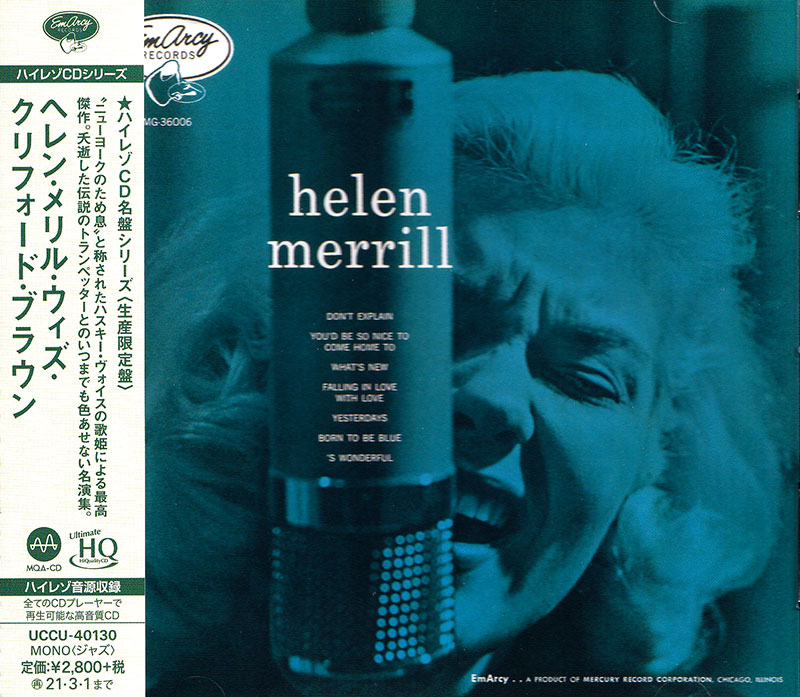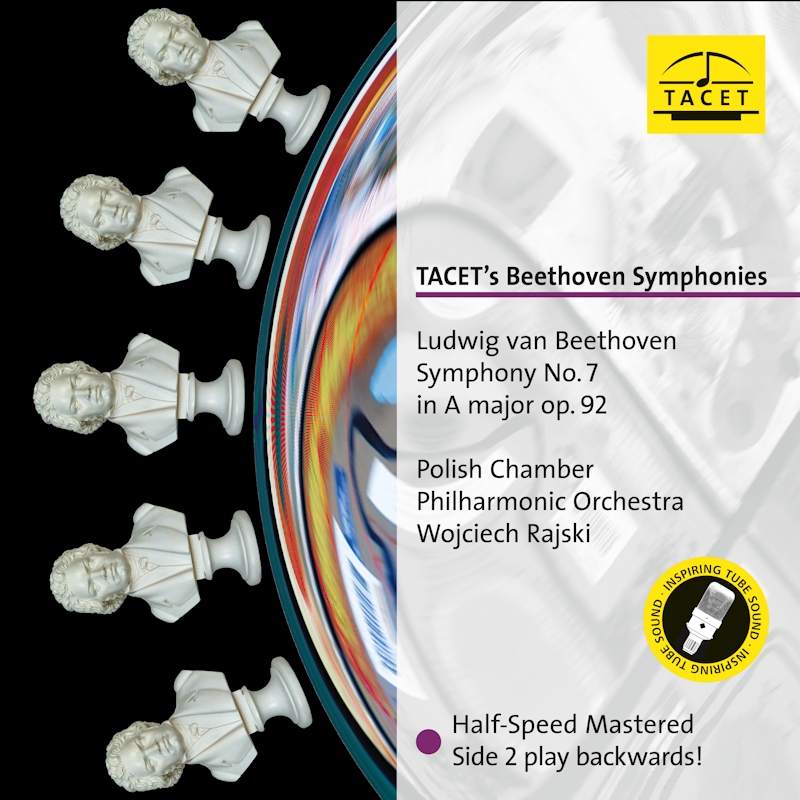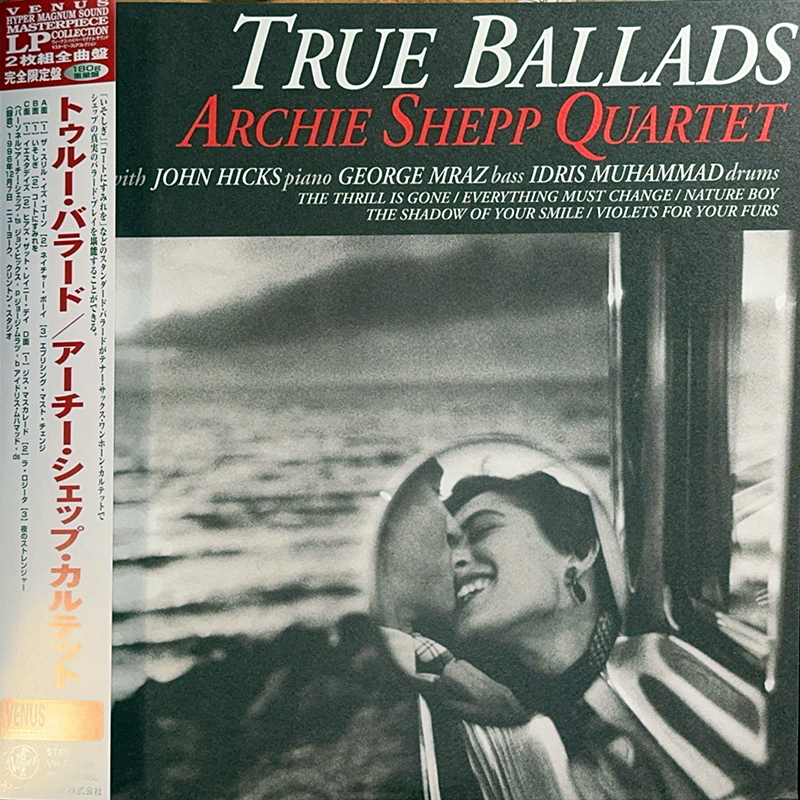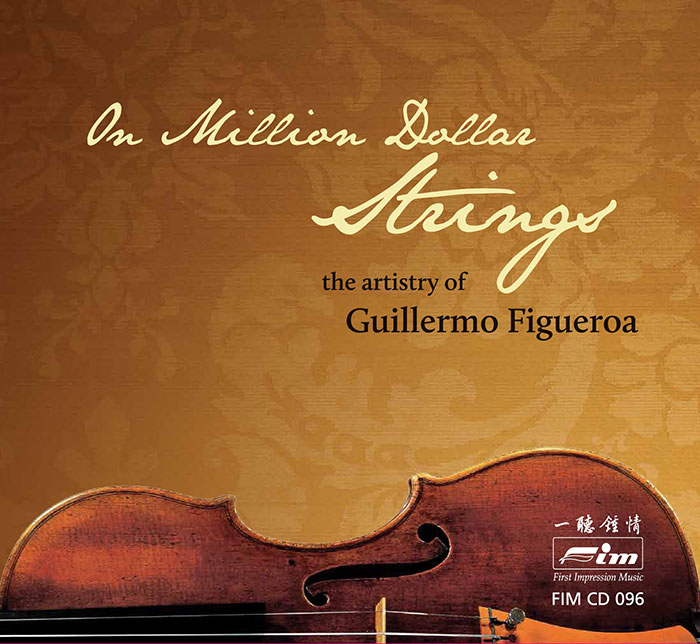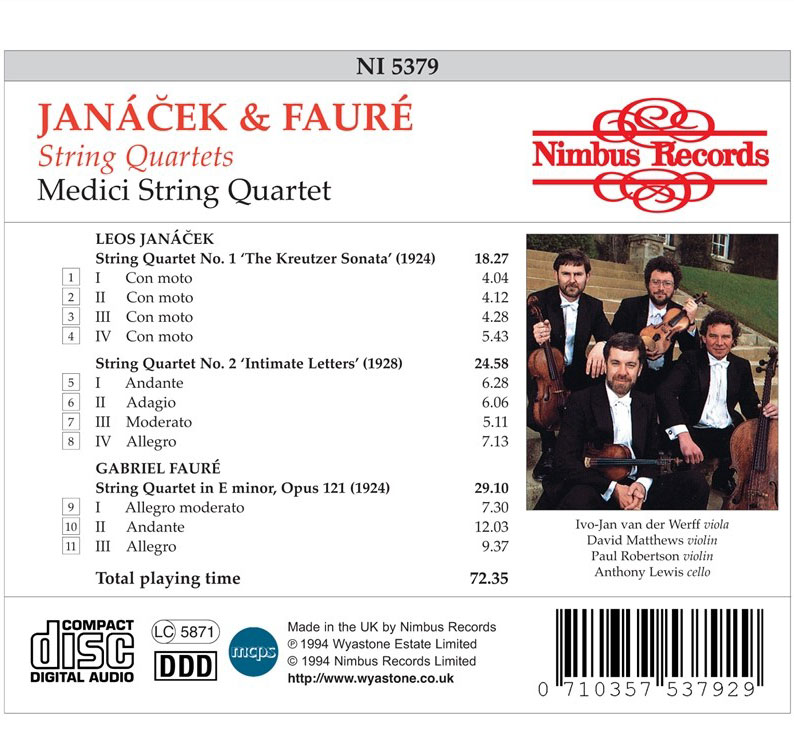Logowanie
OSTATNIE EGZEMPLARZE
Jakość LABORATORYJNA!
ORFF, Gundula Janowitz, Gerhard Stolze, Dietrich-Fischer Dieskau, Deutsche Oper Berlin, Eugen Jochum
Carmina Burana
ESOTERIC - NUMER JEDEN W ŚWIECIE AUDIOFILII I MELOMANÓW - SACD HYBR
Winylowy niezbędnik
ClearAudio
Essence MC
kumulacja zoptymalizowana: najlepsze z najważniejszych i najważniejsze z najlepszych cech przetworników Clearaudio
Direct-To-Disc
PIAZZOLLA, ChamberJam Europe
Tangos del Ángel y del Diablo
Direct-to-Disc ( D2D ) - Numbered Limited Edition
JANACEK, FAURE, Medici String Quartet
String Quartets
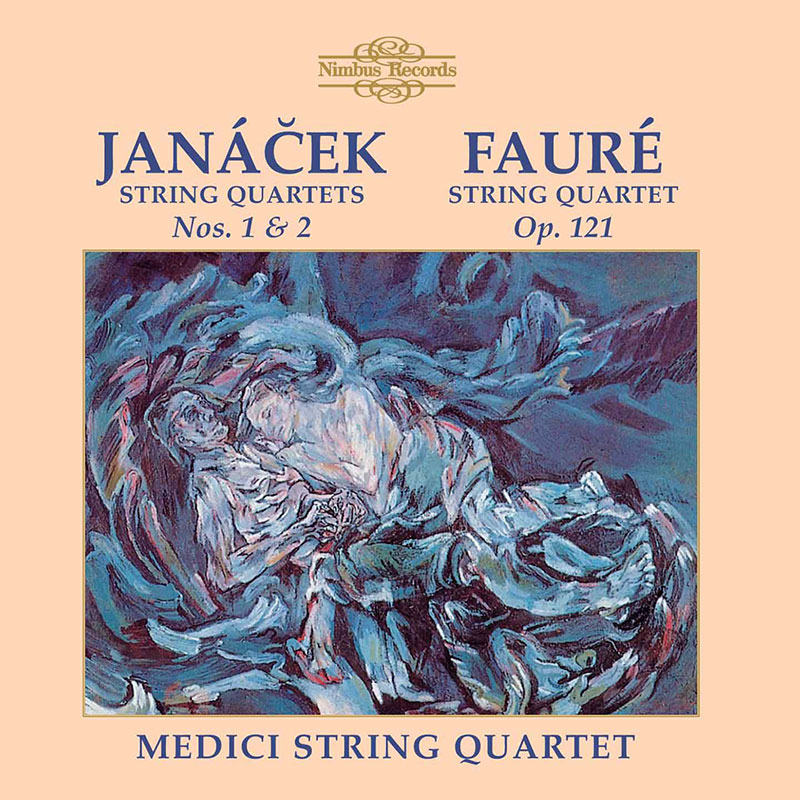
- Leos Janácek
- 1 String Quartet No. 1 The Kreutzer Sonata (1924) I Con moto 4.04
- 2 II Con moto 4.12
- 3 III Con moto 4.28
- 4 IV Con moto 5.43
- 5 String Quartet No. 2 Intimate Letters (1928) I Andante 6.28
- 6 II Adagio 6.06
- 7 III Moderato 5.11
- 8 IV Allegro 7.13
- Gabriel Fauré
- 9 String Quartet in E minor, Opus 121 (1924) I Allegro moderato 7.30
- 10 II Andante 12.03
- 11 III Allegro 9.37
- Recorded at Nimbus Records, Wyastone Leys, Monmouth
- Tracks 1-4 on 8th January 1988, Tracks 5-8 on 4th November 1987, Tracks 9-11 on 9th January 1988.
- Medici String Quartet
- JANACEK
- FAURE
The Medici String Quartet formed in 1971whilst its members were studying at the Royal Academy of Music, they were coached by Sydney Griller. Their reputation firmly established both at home and aboard in considerable breadth of repertoire. They studied a wide range of standard masterpieces while resident quartet at the University of York, but also were had an unrivalled reputation as champions of British Music and gave many important first performances to their credit. They also had a particular affinity with Czech masters, which reflected in their recordings of works by Janacek and Smetana. The Medici Quartet disbanded in 2007 when Paul Robertson the founder and leader of the quartet for over forty years became seriously ill. These reissue from the Quartet’s Nimbus recordings made in the 1980’s join their other releases including the Beethoven Complete String Quartets (NI 1785), and works by Janáček & Fauré (NI5379) and Smetana & Debussy (NI 5389). Reviews "This performance of the Janáček’s First Quartet is very fine indeed. The tension between the two protagonists of the Tolstoy novel that inspired the work, as portrayed in the first movement, is perfectly brought out by the Medici Quartet, as is the coquettish character of much of the second. The third movement portrays the tragic act, dramatically played out here. My only disappointment, and it is a marginal one, is the tempo chosen for the main part of the finale. Had this been a little more rapid the repeated dotted note accompaniment figures might have been more urgent and less heavy, and the closing pages even more stunning than they already are in this performance. There can be no doubts at all about the performance of the Second Quartet. It is one of the finest available, and the finest I have heard by a non-Czech quartet. The sul ponticello effects in the first movement will surprise some listeners accustomed to other performances: they are very drawn out and remarkably spectral. I was unsure about this at first, but repeated listening has convinced me. It was at the first hearing, though, that I excitedly signalled the startling high trills just before the end of the first movement, superbly executed by this remarkable ensemble. The rapid scrubbing passages in the second movement sound dynamic here, but above all, beautiful. There is a “lift” to the lilting rhythm of the third movement that many quartets do not achieve, and I find it appropriate and moving. Then the finale is a tour de force, played with stunning virtuosity, seemingly about to break the bounds of the medium, astonishingly fervent and passionate. This is a great performance and one that deserves its place in every collector’s shelves. Fauré’s only string quartet, also composed in the last year of his life, is a work of Olympian calm. His later music, frequently sombre in nature, is almost totally free of demonstrative effect and surface gesture. The music can seem austere, though never sparse in harmony or texture. It is detached and cool, though never cold. It is music distilled, pared down in such a way as to leave only the essentials. The Medici Quartet’s performance is masterly. The recording is excellent, detailed and vivid; there is a very capable essay on Janáček by Patrick Lambert; and if the coupling leads an unsuspecting listener into the rarefied world of late Fauré, so much the better." William Hedley, musicweb-international.com “... all the beauties of tone and phrasing of their reading are under-pinned by a fine gravity of utterance and a firm continuity of line." Gramophone on NI1785 Beethoven Sting Quartets Debussy's youthful quartet, in contrast, is consistently sunny and warm, and features a lively pizzicato scherzo and a gentle lullaby. England's Medici Quartet prefers to help the music unfold rather than rip through it; in every case, the performances are highly sympathetic. passionate.com on NI5389 Smetana & Debussy String Quartets
